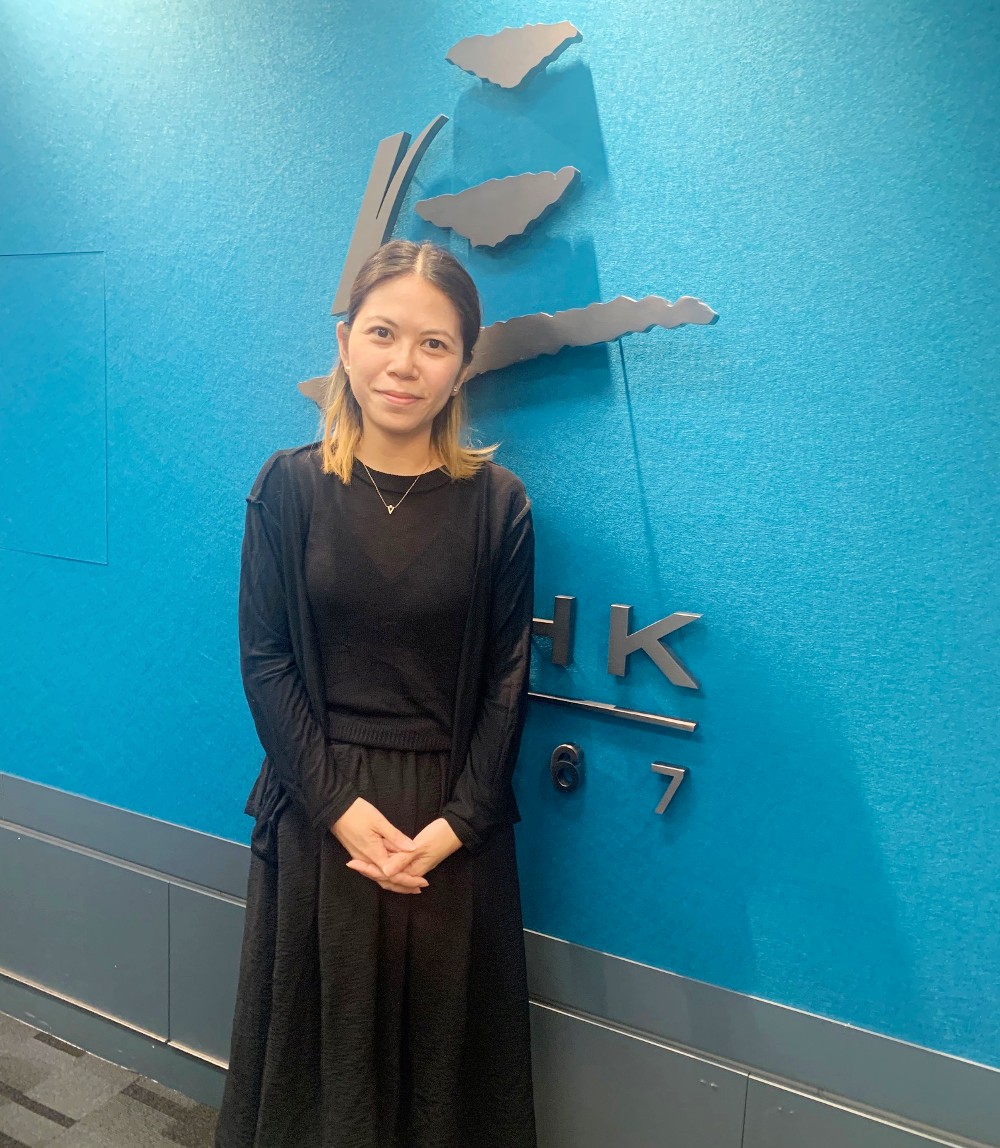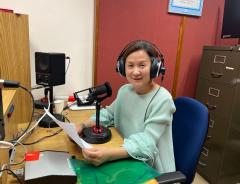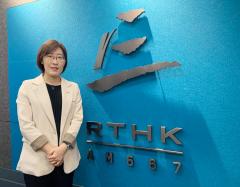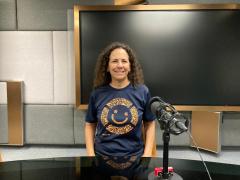簡介
Listen to #Hashtag Hong Kong every Sunday morning at 8.15
Focussing on issues affecting civil society, we'll hear from representatives of NGOs, associations, statutory bodies, and non-profit groups.
(Sundays 8.15am - 8.25am)
最新
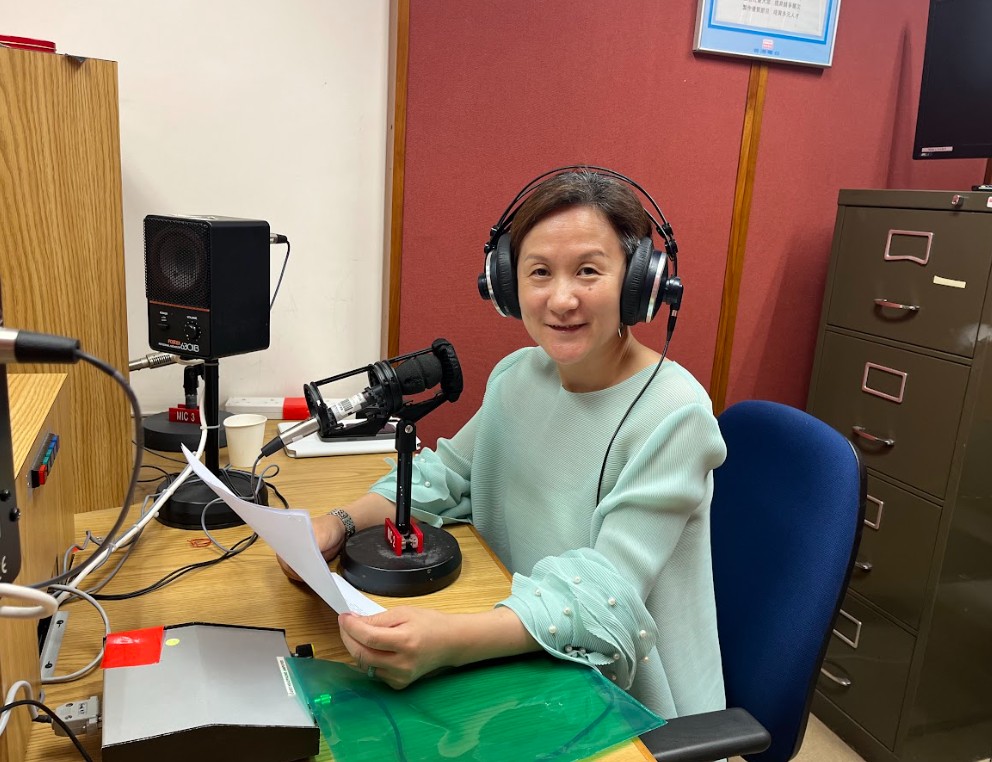
Vivian Lou, Director, Senior Citizen Home Safety Association
Good morning, everyone. I'm Vivian, Director of the Senior Citizen Home Safety Association and Professor in the Department of Social Work and Social Administration at The University of Hong Kong. Today, I’m going to share a little bit about a critical challenge facing Hong Kong's rapidly ageing population - the depression among older adults.
As you may be aware, Hong Kong is becoming an ageing society. More than 20% of our population is now 65 years old or above, and this percentage is expected to keep growing in the coming years. This demographic shift is creating significant challenges for our community, especially for our public health. One of the major issues is the high rate of depression among our senior citizens. Studies show that around 11% of Hong Kong's older adults suffer from at least one common mental health problem, and depression is a big part of that.
Why is this happening? The high rates of depression among older adults can be attributed to several key risk factors. Older adults often face multiple health challenges, ranging from chronic illnesses to physical limitations, which can significantly impact their mental well-being. Additionally, financial concerns, such as poverty and low income, can create significant stress and anxiety. Social isolation is another major contributor. Furthermore, the cognitive and functional declines associated with ageing can exacerbate feelings of helplessness and diminish an individual's ability to cope effectively. Even social culture could also be a factor that worsens the situation by discouraging older adults from seeking help. These factors can significantly impact an older adult’s overall well-being and quality of life.
Depression in older adults often presents differently than in younger populations. They may have common symptoms such as persistent sadness, anxiety, and difficulty concentrating. However, older adults are more likely to display cognitive changes and physical symptoms such as chronic pain or digestive problems, rather than the emotional symptoms we often associate with depression. This can make depression harder to diagnose and treat.
The good news is that there are effective ways to address depression in older adults. In addition to medication, community-based interventions and traditional practices like Qigong are often found to be effective approaches to treat depression in older adults. In Hong Kong, various local organisations are providing community-based mental health support to older adults. Let's take the Senior Citizen Home Safety Association's comprehensive 24/7 support service “Care-on-Call” as an example. This service has a team of registered social workers to take care of users’ emotions and mental well-being. We offer crisis assessment, emotional support, counselling, and information on community mental health resources. Through early screening and intervention, this service aims to prevent or alleviate the onset of major depression among older adults.
However, there's still a lot more that needs to be done. Given the rapid ageing of Hong Kong's population, the government may need to increase the availability of free or low-cost mental health services for older adults, so that more of those in need can access professional support. More resources for training social workers and healthcare professionals are also essential to better identify and manage mental health issues. Furthermore, the government should strengthen its collaboration with community organisations to focus on the mental well-being of our seniors. For example, they could encourage community centres and other groups to regularly host mental health talks and support groups, where older adults can come together, share, and find comfort in one another.
Ultimately, helping with depression in Hong Kong's ageing population is going to take a lot of different efforts. We need to make mental health less "shameful", empower communities, and ensure our seniors have the resources and care they need. It's a big challenge, but an important one we have to keep working on.
And to end on a positive note, I’d like to dedicate this song to all of you as I am a strong believer in the power of love. With love, we can! It’s called Ping Zhuo Ai by Julie Sue.
預告
Jamie Lau, Project Manager of Natural Parenting Network
Recently, the Equal Opportunities Commission released a report on breastfeeding at publicly accessible premises in Hong Kong. We from the Natural Parenting Network would like to share the challenges that breastfeeding mothers face and hope the public will better understand our needs and offer support and respect.
Breastfeeding not only benefits babies and mothers, but also families, and the workplace, as well as the society ultimately.
The success and sustainability of breastfeeding depend not only on the effort of mothers and babies but also how the support from their environment: the attitude of family members, societal views, the workplace arrangements when mothers return to work etc.
Breastfed babies receive natural antibiotics and other life-immune contents, especially during their vulnerable period before the age of 2. This reduces the risk of babies getting sick or hospital admissions, which subsequently decreases the need for parents to apply for leave to take care of their children. Parents then can focus more on their work and have high productivity, which is a win-win situation for the new families, organization and society.
Apart from physical benefits, breastfeeding also helps mothers and babies establish a close bond and attachment, leading to better emotional and brain development. Therefore there is an essential need for social support for breastfeeding families.
We realized that mothers are facing some difficulties:-
1 . Although many public venues provide baby care or nursing rooms nowadays, the number of facilities provided is far less to meet the demand. There may be 1 or 2 nursing rooms if lucky or it maybe only available on certain floors). But the number of families visiting the venue is not 1 or 2! We can imagine when a baby shows their early hunger signal, mothers need to find their way to the baby care facilities, which may take a 10-minute walk, only to find the room may be occupied, leading to a further waiting of 30 minutes or more.
2. Some nursing areas are designed to share with baby-changing stations. This would lead to a longer waiting time and queue for those who have real needs.
3. Sometimes misutilization occurs such as people occupying the nursing room for bottle/ formula feeding babies, having lunch, or other uses rather than breastfeeding! Some facilities management offices may lock the room for better control and avoid the above occurrence. When mothers reach the nursing room, they need to call the management office and wait for them to unlock the room. It is very inconvenient indeed and the purpose of establishing a breastfeeding room cannot be fully utilized.
The availability of breastfeeding facilities is only one of the difficulties that mothers face. There is also a lack of awareness and acceptance of breastfeeding. People think it’s just the same between breastfeeding and formula feeding and even may stop mothers from breastfeeding in open areas such as shopping arcades, restaurants, and parks etc. They even ask mothers to feed their babies in the washroom, which is inhumane. This can deter mothers from bringing their babies out even for a walk.
On the other hand, there are only guidelines issued by the government but not ordinances to monitor employers to provide certain designated breastfeeding periods and spaces. Therefore apart from families visiting public venues having their needs for breastfeeding facilities, some working mothers need to pump or express breastmilk at nursing rooms near their workplace, which increases the need for certain amount of breastfeeding rooms.
There is an increasing need for breastfeeding facilities in public and government premises. Government legislation on breastfeeding facilities requirements in newly built and refurbished premises can absolutely help to fulfil the demands. Relative stakeholders shall put an effort into supporting breastfeeding families. The developers can arrange breastfeeding facilities by re-arranging shops/ office areas in their existing premises, placing portable cube breastfeeding rooms can already help a lot. We think it is a social responsibility to offer support and respect to breastfeeding mothers.
The above-mentioned hindered mothers' continuous breastfeeding, especially after getting back to work. The attitude of the people around them is very important. How the public reacts to breastfeeding strongly affects mothers’ confidence and minds in sustaining their breastfeeding journey. We would recommend the government to promote and educate people that “breastfeeding is just that normal”, breastfeeding mothers are deserved to be respected and accepted. Mothers have the right to breastfeed their children anytime anywhere, even the breastfeeding facilities are not available, without being stared by strange eyes.
There are resources in the society that support breastfeeding mums. We are breastfeeding mothers and we provide peer support to expected and post-natal parents, the “Breastfeeding Peer Counseling Program” (in short “BFPC) is commissioned by the Department of Health. We organize workshops and deliver correct breastfeeding information via social media like Facebook, Instagram, WeChat, and YouTube. Mothers can also raise their enquiries by reaching out our hotline and WhatsApp group services.
Moreover, we recommend mothers download the mobile app “ Breastfeeding GPS” so that they can obtain the location of breastfeeding facilities nearby when they are going out with their babies or there is a need for a place for milk expression during work or away from their babies.
This morning, I’d like to dedicate the song Never Grow Up by Taylor Swift to all of you listening. Enjoy and Thank you
重溫
Fiona Nott, CEO of The Women's Foundation
Dear Hong Kong Community,
When I spoke with you all two years ago, we were facing grim circumstances. COVID had caused separation and devastation, and it was unclear just how far its impact would extend and for how long. But now, thanks to the collective efforts and sustained hope of each and every one of you, we are looking out to new, brighter horizons.
Hong Kong aspires to take its place as a cultural powerhouse on a global stage – and there’s so much this city has to offer the rest of the world. However, before we can do so, we must address our rapidly ageing society and economic challenges fuelled by a persistent talent shortage. One way for us to meaningfully address some of these issues is through closing the gender gap.
The benefits of gender equality are clear and long established: Happier families. Better business outcomes. A more robust economy. These benefits help everyone, regardless of gender.
But our city is far from reaping the benefits of gender equality. Only 48% of women are in the workforce, this is lower than many of our neighbours including Singapore, Australia and Japan. Women are 10 times more likely than men to cite household responsibilities as a key reason for not being economic contributors. For every HK$10 earned by a man, women earn just HK$8.5. These are but a few of the numerous gender inequalities that continue to permeate areas such as safety, mental health, poverty, and career advancement, among others.
What is preventing us from closing the gender gap?
A key barrier to progress is zero sum thinking – where individuals believe that promoting the rights and opportunities of one gender will diminish and devalue another. A “you lose, I win” mindset.
We know the zero-sum mindset is prevalent in Hong Kong: 38% of men and 52% of women believe gender equality is a women’s issue and men need to stay out of the way, and 47% of men and 29% of women believe women benefit most from a gender equal society.
We need people of all genders to model inclusive mindsets, to ensure that the full constellation of diverse voices are heard and valued. To ensure there are equitable opportunities, policies, and distribution of resources.
And while government and businesses all play a part in making this happen, none of this change is possible without individual action and buy-in. So how can we each #InspireInclusion this IWD? Here are three ways to start:
1. Learn about the issues. Understand how gender inequality harms people of all genders and what forms this can take. Look at how this issue intersects with, and is complicated by, other identity factors such as race / ethnicity, culture, sexual orientation, ability, religion, socio-economic background and more.
2. Talk about it. At work and at home talk about how the zero sum mindset might unintentionally show up. For instance, the misconception that if a male colleague advocates for gender equality at work it may negatively impact their own career or the misbelief that if a woman takes on more responsibilities at work, it will negatively impact the well-being of their family at home. Explore pushback or resistance to the idea that gender equality benefits everyone and share ideas on how best to tackle this.
3. Do the work and be an ally. Commit to listening, learning and acting. Use gender inclusive language. Refrain from phrases, jokes or cultural references that perpetuate stereotypes about any one gender. Actively intervene when you hear someone else perpetuating stereotypes. Help others see the benefits of gender equality.
These are just a few of the many, many actions each of us can take.
I know this is no easy task. Reflecting on our own internalised biases and assumptions and then taking action to address these areas is challenging, ever-evolving work at an individual, organisational and societal level.
As CEO of The Women's Foundation, I know an inclusive, gender equal city is possible. I have seen first-hand the exceptional results that follow when individuals and organisations put in the effort to understand how gender inequality harms people of all genders, determine where they might be perpetuating biases and take initiative to change.
Our Mentoring Programme and Male Allies communities are inclusively leading in their companies and in our community; our Young Allies are influencing the next generation of gender equality advocates; and our Girls Go Tech Programme participants are not just ensuring future STEM fields are more gender equal, they will be working to solve some of the most challenging issues of our time.
The work of each of us – as individuals, organisations, communities – matters. And when our efforts are combined, the results are transformational.
Join us to #InspireInclusion this International Women's Day and take steps for a gender equal future through your words and actions.
I'd like to dedicate this song to the women and girls of Hong Kong – and all gender equality advocates. The song is In debt by a local band Riddem.





